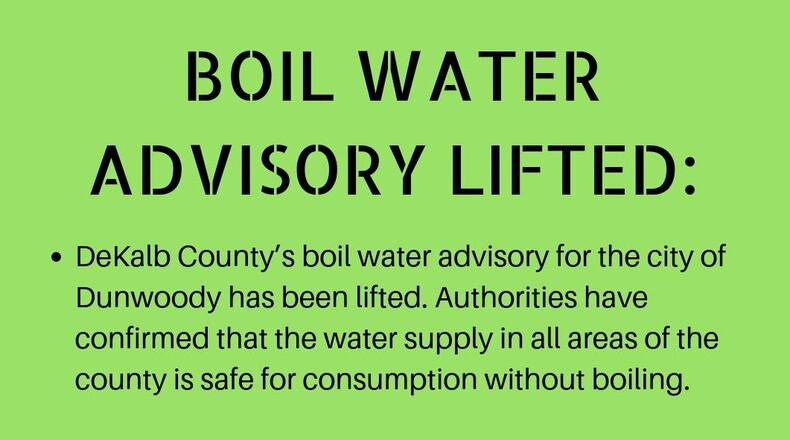Schools, homes and businesses in Dunwoody had to contend with a third day under a boil water advisory, which was ultimately lifted Monday afternoon.
Restaurant owners contacted by The Atlanta Journal-Constitution reported that the three-day alert caused by a power outage at a DeKalb County water treatment plant required them to adapt and affected their bottom lines.
Mike DiPaolo, its managing partner and co-owner of Novo Cucina restaurant in Dunwoody, said customers were down by 20% over the weekend.
To cope with the advisory, Novo managers purchased bottled water and cases of canned soda. They boiled water in large pasta cookers that was used to wash and prep vegetables. Hand sanitizer was placed by each sink in case employees or customers felt unsafe using tap water to wash their hands.
That means the restaurant was spending extra money even as the crowds were smaller-than-usual, DiPaolo said.
“It’s very disappointing to think a storm would be able to disrupt DeKalb water like that,” he said at the beginning of Monday’s lunch rush.
All of DeKalb County was under a boil water advisory for most of the weekend, but the alert was lifted for all but Dunwoody on Sunday night.
The advisory went into effect around 10 a.m. on Saturday morning, hours after heavy thunderstorms caused power outages at Scott Candler Water Treatment Plant in Dunwoody. The county said the first outage occurred at 10:40 p.m. on Friday and there was a second at 2:36 a.m. Saturday.
Backup generators restored electricity to the facility within minutes, but water pressure had briefly dropped below the minimum deemed safe. The county says it issued the boil water advisory “in an abundance of caution.” During that time, residents were encouraged to boil water for at least 1 minute to ensure it was free of contaminants.
The advisory was lifted for most of the county around 9 p.m. on Sunday after 29 of 30 testing sites confirmed the water was safe. Although no bacteria were present at one Dunwoody location, the results were inconsistent and required additional testing, so the advisory stayed in effect there.
Cafe Sababa in Dunwoody is closed on the weekend, but employees made special preparations before reopening Monday at lunchtime. That included boiling water used to wash produce and temporarily removing iced tea from the menu.
“It is very inconvenient and it’s a little costly, but you have to live with it,” owner Doni Tamli said.
County officials worked in conjunction with the City of Dunwoody and DeKalb County public schools, which had considered closing campuses. Instead, the school system provided bottled water to the seven Dunwoody schools affected by the alert.
Dunwoody city spokeswoman Jennifer Boettcher said the various city, county and school entities shared information and worked together to notify residents and businesses. Dunwoody also had to ensure its city workers were taken care of.
“Like other businesses, we’re providing bottled water to our employees, including police officers,” Boettcher said Monday. “We’re encouraged by the delivery of thousands of bottles of water to our schools.”
Still, some DeKalb residents are wondering why it took about 12 hours from the initial power outage for a boil water advisory to be publicized.
Ann Abramowitz, who lives in Decatur, said she noticed a temporary loss in water pressure around 9 p.m. Friday. There were no storms near her home, so she shrugged off the incident and continued using water from her tap.
She was surprised to learn about the boil water alert around noon on Saturday.
Abramowitz said Monday that she wanted to know more about the protocol the county is required to follow when there are issues at water treatment facilities. She wondered if the county should have been compelled to tell residents sooner.
The county, in a press release Monday morning, said it notified the Georgia Environmental Protection Division as soon as the issue was discovered. The DeKalb County Emergency Management Agency coordinated communication with various entities, including schools and hospitals.
But the county has not addressed when it decided to issue the boil water advisory and how that took shape.
DeKalb County says the Georgia Environmental Protection Division has a three-step protocol for issues like the power outage that led to this weekend’s boil water advisory.
1. Upon discovery of an incident, the county should perform an initial assessment to identify the approximate source of the problem, affect areas and necessary fixes.
2. Contact the necessary Georgia Environmental Protection Division contacts to discuss the situation and determine next steps. Notify the county health department and the county Emergency Management Agency.
3. Issue a public advisory to let affected customers know what happened.
About the Author
The Latest
Featured


